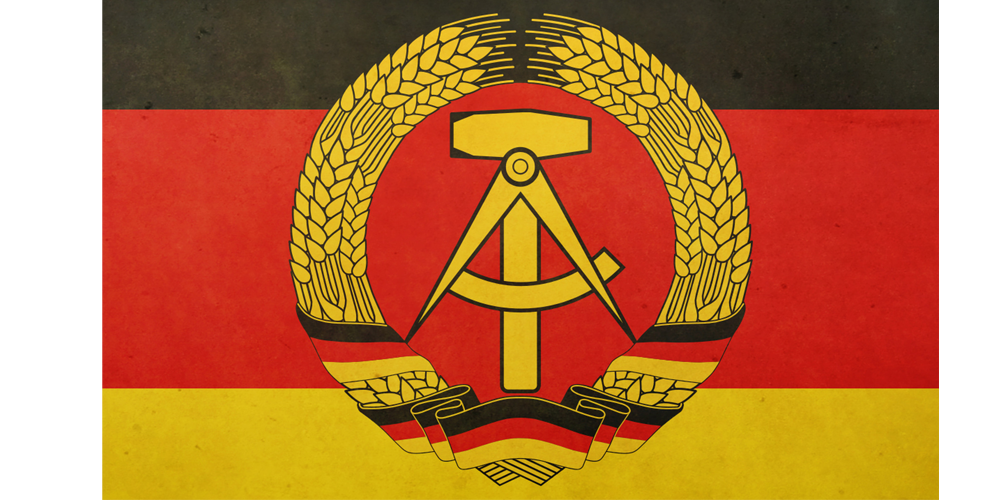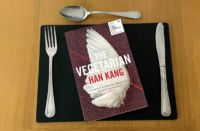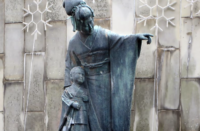based on an interview with Karl Döring
The unification of Germany in 1990 initially inspired hope but quickly descended into chaos for many in the former GDR. As someone who experienced this transition firsthand, I witnessed the upheaval caused by the shift from a planned economy to a market-driven system. My attempts to save Eisenhüttenkombinat Ost (EKO, Iron and Steel Combine), a major industrial enterprise, and my involvement with the Treuhandanstalt (Trust Authority), which privatised East German state enterprises, reflect the emotional and economic turmoil of that period.
The privatisation processes following the GDR’s annexation into the Federal Republic defined my management experience in the “new world” with its many challenges. Within our leadership team and the newly established work’s council, we were determined to preserve the Eisenhüttenstadt plant. This wasn’t just a steel plant but a complex industrial operation, including ore production, blast furnaces, and steel processing. At the time of unification, EKO employed 12,000 people, and the town of Eisenhüttenstadt, along with its economy, depended on the plant’s survival. As we said, “If the plant dies, so does the town.”
My role as an East German representative within the Treuhand was marked by conflict. The Treuhand’s governing bodies were the supervisory board, which oversaw operations, and the executive board, which handled daily management. The first head of the supervisory board, Detlev Rohwedder, was pragmatic and understood the importance of including East Germans in decision-making. With his support, I was appointed to the supervisory board in 1990, providing me a direct view into the critical decisions shaping the East’s future.
However, my tenure was short-lived. When Rohwedder moved to the executive board, he was replaced by Jens Odenwald, a West German who showed little regard for East Germans. Under his leadership, we were systematically sidelined. Meetings were restructured, and East German representatives were gradually excluded from decision-making. Odenwald himself told me to “focus on EKO” and ignore broader Treuhand affairs, essentially dismissing me. Despite our formal appointments by the GDR government, West German authorities disregarded our legal standing and expertise. This slow marginalisation reflected the broader disrespect shown towards East Germans in the unification process. As Rohwedder put it: “Mr. Döring, give up, you have no chance: such is the current climate.”
The political discontent seen in East Germany today, particularly in populist movements like the AfD, has its roots in the treatment of East Germans after unification. The economic upheaval, especially mass unemployment, left deep scars. In Eisenhüttenstadt, unemployment soared to over 20% in the 1990s, and recovery seemed impossible. Many workers were given severance packages, similar to those in the West, but for people who had spent their lives in full-time work, being asked to retire at 55 was devastating. Entire social structures, including workplace communities and local clubs, collapsed, and the next generation grew up witnessing their parents’ struggles with unemployment and insecurity.
Western politicians, both then and now, failed to understand the magnitude of this devastation. In the GDR, unemployment was unthinkable; suddenly, millions were jobless overnight. The collective bonds that had tied people together—through work, sports clubs, and community institutions—vanished. This sudden collapse left deep psychological and economic wounds that still affect the region today.
The differences between a functional planned economy and the rigid system of the GDR lay in flexibility and scope. In the GDR, everything was planned down to the smallest detail, stifling local decision-making and innovation. A successful state-level planned economy requires realistic policies, decentralised decision-making, and limited central intervention. Social and economic subsidies should be carefully managed, and market-regulated prices should play a role. Honest statistics and worker involvement in planning could make such an economy a viable alternative to today’s profit-driven system.
Today, capital interests dominate more than ever, and the political system increasingly resembles “chaos.” The absence of a strong force representing the majority’s interests has eroded the ability of political parties to build consensus, which is essential for fair and progressive policies. This inability to reach consensus harms Germany, as it blocks the development of policies that consider the needs of all.
Reflecting on those years, it’s clear that the transition from socialism to capitalism was far more complex and painful than many anticipated. For those of us who fought to save industries like EKO Stahl, the battle was both economic and deeply personal. We weren’t just trying to save a company; we were fighting for the dignity and future of an entire region. The ongoing discontent in the East underscores the importance of making economic decisions that consider the human cost. Planning, whether in government or business, must account for those most affected by these changes.
Karl Döring (b. 1937) earned a PhD in metallurgy in Moscow, was production director at the VEB Quality and Stainless Steel Plant, and deputy minister for mining (1979-1985). From 1985, he was general director of Eisenhüttenkombinat Ost (EKO) and served as deputy chairman of the Treuhandanstalt’s supervisory board in 1990.
The full interview was published in Berliner Zeitung (29.09.2024)






